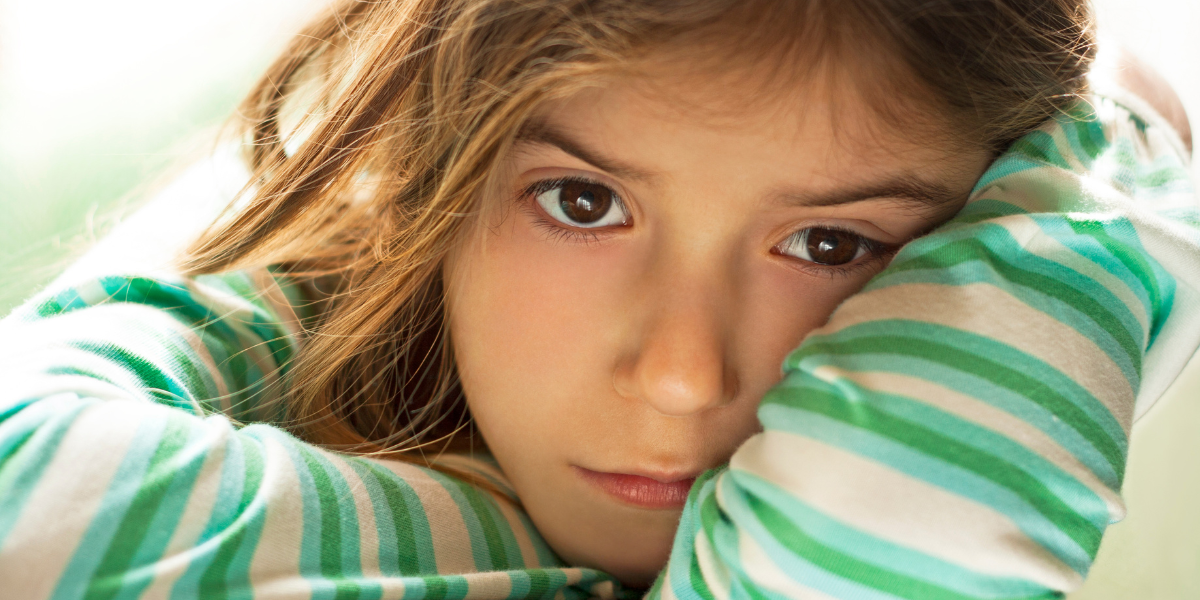What are the most common signs and symptoms of thyroid disease? How is thyroid disease treated? For Thyroid Awareness Month, we answer some common questions about thyroid disease in children and adolescents.
While thyroid disease is often associated with adults, thyroid problems can occur at any age, including in infancy. Thyroid disorders are common in school-aged kids, affecting nearly 37 in 1,000 children. Even though thyroid issues are prevalent in children and adolescents, parents are often surprised to learn that their kids have been diagnosed with a thyroid disease.
What is the thyroid gland and what does it do?
The thyroid is a small but mighty, butterfly-shaped gland located at the base of the front of the neck. It produces two primary hormones called triiodothyronine (T3) and tetraiodothyronine (T4), which are sent to all the cells of the body. Calcitonin, a hormone that impacts calcium and bone metabolism, is also produced by the thyroid gland. T3 and T4 are collectively referred to as thyroid hormone.

Thyroid hormone controls the body’s metabolism, the chemical process that converts food into energy. Given that all cells in the body need energy to function, thyroid hormone is essential to early brain development, the regulation of vital body functions — such as heart rate, breathing, muscle and digestive function — as well as growth and development throughout childhood and adolescence.
How are thyroid disorders diagnosed in kids?
Thyroid disorders can usually be detected by a simple blood test that checks thyroid hormone levels. Telltale symptoms and a physical examination can also play a role in diagnosis. Thyroid imaging is often used in cases of congenital hypothyroidism during newborn screening or if a mass on the thyroid is detected.
What are the most common thyroid disorders in children?
Hypothyroidism and hyperthyroidism are the most common thyroid disorders diagnosed in children, though hypothyroidism is the more common of the two. Hypothyroidism occurs when the thyroid gland does not produce enough thyroid hormone, and hyperthyroidism is when the thyroid produces too much. Both disorders can have a serious impact on kids’ health and can cause a myriad of symptoms.
It’s important to remember that many of these symptoms can also be explained by other health issues or life events. If you notice that your child is exhibiting unusual or increased symptoms, however, this could be an indication of a thyroid disorder.
How do I know if my child has hypothyroidism?
In hypothyroidism, the thyroid gland is underactive and is unable to produce and send enough thyroid hormone to the cells of the body, resulting in the body’s metabolism slowing down. There are many possible signs and symptoms of hypothyroidism for parents to look out for.

Some of the common signs and symptoms of hypothyroidism in kids include:
- Brain fog and difficulty concentrating
- Cold sensitivity
- Constipation
- Decreased growth rate
- Delayed puberty
- Depression
- Dry, course, brittle hair and hair loss
- Dry skin
- Fatigue
- Hoarse voice
- Inactivity
- Irregular menstrual periods
- Muscle stiffness and pain
- Puffy face
- Weight gain
What causes hypothyroidism and how is it treated?
When hypothyroidism is diagnosed in infancy, it’s considered congenital. Hypothyroidism can also develop later in childhood or adolescence and is commonly caused by Hashimoto’s disease, an autoimmune disorder where immune cells mistakenly attack the thyroid, causing damage to the gland. Hashimoto’s thyroiditis is more common in girls — about one in 300 girls and one in 1,000 boys are diagnosed with Hashimoto’s.
Hypothyroidism is usually treated by medication that is taken daily, such as levothyroxine (synthetic thyroid hormones). Given the importance of thyroid hormone to growth and development, the correct dose of synthetic hormone is critical. Your child should be tested periodically after treatment has started, as it’s common to require a higher dose over time.
How do I know if my child has hyperthyroidism?
In hyperthyroidism, the thyroid is overactive, sending too much thyroid hormone to the cells of the body. This results in an increase of the body’s metabolism. While there are some similar symptoms with hypothyroidism and hyperthyroidism, there are some unique symptoms of the condition.

Common signs and symptoms of hyperthyroidism in children and adolescents include:
- Accelerated growth
- Diarrhea
- Difficulty concentrating
- Enlarged thyroid gland
- Fast heartbeat
- Feeling irritable
- Feeling jumpy
- Heat sensitivity
- Increased appetite
- Irregular menstrual cycles
- Muscle weakness
- Tremors in the hands
- Weight loss
What causes hyperthyroidism and how is it treated?
Like hypothyroidism, the most common cause of hyperthyroidism is an autoimmune disorder, called Graves’ disease. This disease causes the body to produce antibodies that activate the production of more thyroid hormone than the body needs. Inflammation and nodules in the thyroid gland can also cause hyperthyroidism.
There are a few treatment options for hyperthyroidism: antithyroid drugs, radioactive iodine ablation and thyroid surgery. Antithyroid medications are the most common treatment for hyperthyroidism; however, if one treatment option doesn’t succeed, other treatment options may be considered.
What should I do if I suspect my child has thyroid disease?
Early diagnosis and treatment are important, as the thyroid gland plays a critical role in a child’s growth and development. If you suspect your child may have a thyroid disorder speak with their doctor. After diagnosis, you will likely be referred to an endocrinologist who will work with you and your child to develop a treatment plan and make necessary adjustments to treatment over time.
While thyroid disease is often a life-long medical condition, it can usually be managed with daily medication, allowing most people diagnosed with a thyroid disorder to lead normal lives.




